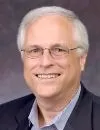In alignment with its mission to foster success among its diverse student body—including adult learners, military members and first-term college students from across the socioeconomic landscape—University of Maryland Global Campus (UMGC) is expanding its one-on-one academic counseling with a new program called HyperCare.
Just a few years ago, UMGC began discussing ways to revamp its student advising model so that academic counselors could build stronger connections to students and better ensure achievement. The new program, affecting many first-year students, builds on UMGC’s “success coach” model. Previously, every new student was assigned a dedicated success coach focused on building a relationship of trust that would ensure students had confidence in the direction, resources and solutions they needed to successfully complete their education goals.
“Once our success coaching model was fully implemented, we were ready to introduce the next phase of our coaching model—adding a layer of support for students identified [as having] added risks,” said Aspen McPartland, UMGC’s director of student success.
HyperCare partners with HelioCampus, the university’s data center, to determine which students would benefit from more intensive counseling attention, said Associate Director of Student Success Beth Allen, who leads the HyperCare team.
The greatest risk for leaving a degree program or struggling for achievement comes among the ranks of first-term students, especially those who have never enrolled in a university before and those who are among the first in their families to seek a degree, Allen said. Students returning to college after years away from a classroom and students who are unfamiliar with the technology used in online education may also benefit from contact with the HyperCare team.
Connecting the students to HyperCare advisors as soon as possible, often through text messaging, is an important priority.
“We introduce ourselves to them 21 days before their class starts,” Allen said. “We’re finding that these students love to SMS with us, so we’re getting to know them through text messages and starting to build that relationship and build that trust. A couple of weeks in, we’re able to get them on the phone or get them into a virtual advising session to have those real, detailed, one-on-one conversations.”
The HyperCare team works closely with First Term Experience staff to support first-semester students in the required Program and Career Exploration (PACE) course. PACE is designed to help students understand the academic journey ahead, their degree requirements and the best practices for managing their class and study time, especially when they may also be juggling family responsibility and full-time jobs.
When a PACE instructor fears a student may be falling behind in class, HyperCare coaches step forward to offer support. Many HyperCare coaches also serve as PACE instructors.
“We’re letting students lead the way to tell us what’s working for them,” Allen said “Where are they having challenges? What support do they need from us? We could just send them an email with 150 different UMGC resources, but nobody’s going to read all that. We’re looking at each student as a unique individual who has different needs and needs different resources.”
The goal, she said, is to help students identify their strengths as learners, to find out if they have the right kind of equipment for online classes and to assure them that additional support is available between the time they are admitted to UMGC and the beginning of classes.
UMGC’s 14 HyperCare coaches have longtime experience at the university and are dedicated to the work they are doing, Allen said. All of them are prior success coaches who were hand selected and put through special training.
Each HyperCare coach works with about 200 students.
“We just could not be happier with the coaches that have been put in place to support these students,” McPartland said. “They’re passionate. They care. They are excited to be here. They want to make an impact. They are always looking for how they can improve.”
McPartland said that by the time the first term ends, HyperCare students should have a toolkit of resources in place, feel confident about their ability to succeed and be ready to continue their education—with, of course, the help of success coaches who will then step forward to continue to support the students through graduation.
